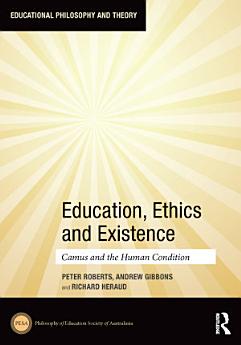Education, Ethics and Existence: Camus and the Human Condition
About this ebook
This volume is one of the first book-length studies of Camus with a specifically educational focus. Camus’ writings raise and address ethical and political questions that resonate strongly with current concerns and debates in educational theory, and the difficulties and dilemmas faced by his characters mirror those encountered by many teachers in school classrooms. This book will appeal to all who wish to consider the connections between education, ethics and the problem of human existence.
This book was originally published as a special issue of Educational Philosophy & Theory.
About the author
Andrew Gibbons is a Senior Lecturer at the School of Education, Auckland University of Technology, New Zealand. His central interests include the work of Albert Camus, the philosophy of early childhood education and the philosophy of technology. He has published on a wide range of educational policies and practices.
Richard Heraud
is a PhD student in the Department of Policy, Cultural and Social Studies in Education at the University of Waikato, New Zealand. His principal interest is the status of creativity and its relationship to the formation of political subjectivities in contemporary education institutions.Peter Roberts
is Professor of Education at the University of Canterbury, New Zealand. His research interests include ethics and education and literature and education. His latest book is Better Worlds: Education, Art, and Utopia (2013).





